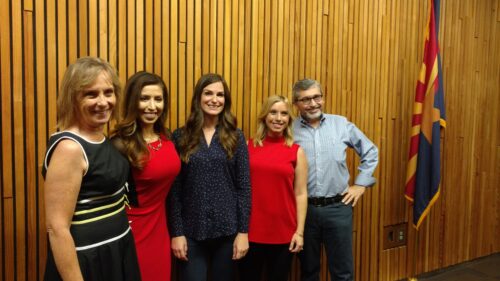#FakeNews: Why We Click It, How to Stop

You can’t go a day without someone bringing up the topic of fake news. But really, what is fake news? From Mary Jo’s perspective, fake news really amounts to the news you don’t like or disagree with, so therefore it must be fake. When in truth, she says, for something to be fake there must be a deliberate desire to deceive someone. And in the case of the news outlets represented on the panel, there is nothing “fake” about their news.
The concept of fake news isn’t really new. After all, who hasn’t read a grocery store tabloid with stories like “Alien Baby Born to New Jersey Couple” or “400 Pound Dog Saves Family From Burning House.” You know those stories are fake, but we read them anyway, enjoying them for the craziness that they are.
The challenge as I see it today is how we’ve bastardized the word “news.” With access to the Internet and a keyboard, virtually anyone can become a journalist. Writing anything they want, creating whatever content they see fit, with no editor or fact-checker to ensure its accuracy. When I went to journalism school, we called that propaganda.
Allison’s advice when asked about how to decipher real news from fake news is that we all need to become better consumers of news. We need to do our own investigations, read multiple and diverse sources. Sure there are media outlets that sway more conservative or more liberal, but the content is still accurate. News outlets will often have opinion pages or editorials that are by design intended to be one-sided and offer up an opinion. These are typically delineated from the rest of the news content so as to be obvious of its intent.
Jessica is a professor in practice at the Cronkite School – bringing real-world experiences to the journalism students. One of the things she says she encourages her students to do is work to engender trust with their audiences (readers, viewers) and to get out in the community. Lauren concurred, saying that there is important journalism happening in our local market, bringing to light issues of great concern to our communities and we should pay close attention to what is happening right here in our own backyard.
As Jessica pointed out, fake news doesn’t work without human behavior. So be smart and a little skeptical about what you read or what you hear, check and double-check that the information is coming from multiple sources and multiple outlets.

